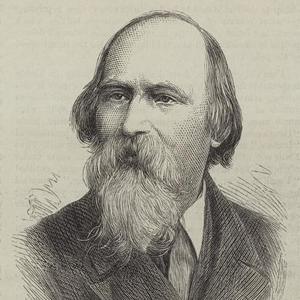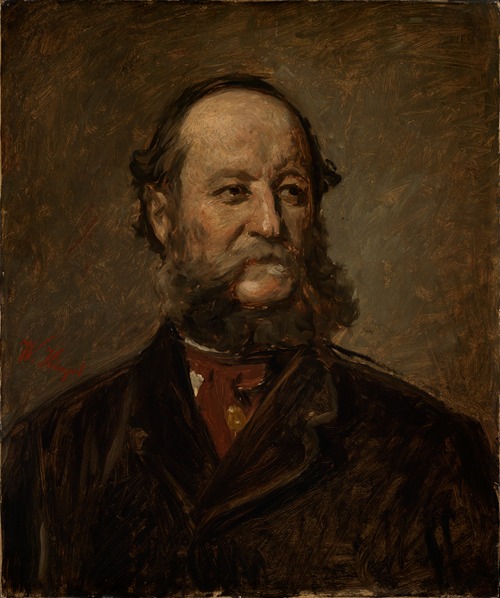

Wilhelm Kümpel
Wilhelm Kümpel was a German portrait, history and landscape painter of the Düsseldorf School. He appeared as a tenor in various musical performances from the 1840s onwards.
Kümpel attended the Düsseldorf Academy of Art from 1840 to 1844, where he studied portrait painting in particular under Karl Ferdinand Sohn. He left there in the 2nd quarter of 1844. Under the conductor Julius Rietz, Kümpel performed as a solo tenor at the Lower Rhine Music Festival in Düsseldorf in May 1845.
When the Schleswig-Holstein uprising took place in 1848, Kümpel was already living in his native town of Altona again, a center of this conflict, in which many Altona citizens were concerned with opposing the Danization efforts of the Danish sovereign Christian VIII and standing up for the cohesion of the Duchies of Holstein and Schleswig in the Schleswig-Holstein question (Up ewig ungedeelt). The history painting Andromeda, forged on the rocks (1847) and the portrait of the composer Cornelius Gurlitt (1848) date from this period. During or after this uprising, Kümpel, then a member of the Hamburg Artists' Association of 1832, was politically imprisoned.
He then went into exile in London. There he worked as a portrait, figure and landscape painter, occasionally appearing as a singer. He took part in exhibitions at the Royal Academy of Arts between 1857 and 1879 with the following paintings: Margaret, from Faust (1857), Disappointment (1859), An incident in the life of Otto I, Emperor of Germany (1862), W.G. Cusins Esq. (1867), In the Wood, New Forest (1873), An old mill in the Tyrol (1877) and Mark-Ash, New Forest (1879). Some of his pictures were reproduced in the Illustrated London News. By 1869 at the latest, he had discovered the New Forest, a romantically wooded area in Hampshire, for his landscape painting. The New Forest Exhibition, which was held in London's Regent Street in 1876 with the aim of contributing to the protection of this landscape through paintings, counted Kümpel among its participants.
He appeared as a singer on March 30, 1854 in the soiree of a "Mademoiselle Hermann". In 1868 and 1869, he took part in concerts by a "Madame Greiffenhagen". On July 4, 1868, as a member of the "Working Men's Society", he performed "Walther's Lied" from Richard Wagner's Die Meistersinger von Nürnberg in an evening performance.
In London, Kümpel was one of the founders of the German Association for Art and Science (German Athenaeum London). Kümpel's friends included the writer and collector George Powell of Nanteos (1842-1882), who commissioned drawings by German composers from him, as well as the painters Carl Haag and Joseph Wolf, who together with Kümpel organized a charity painting exhibition at the German Athenaeum in 1870 for the benefit of the families of fallen German soldiers in the Franco-Prussian War.
